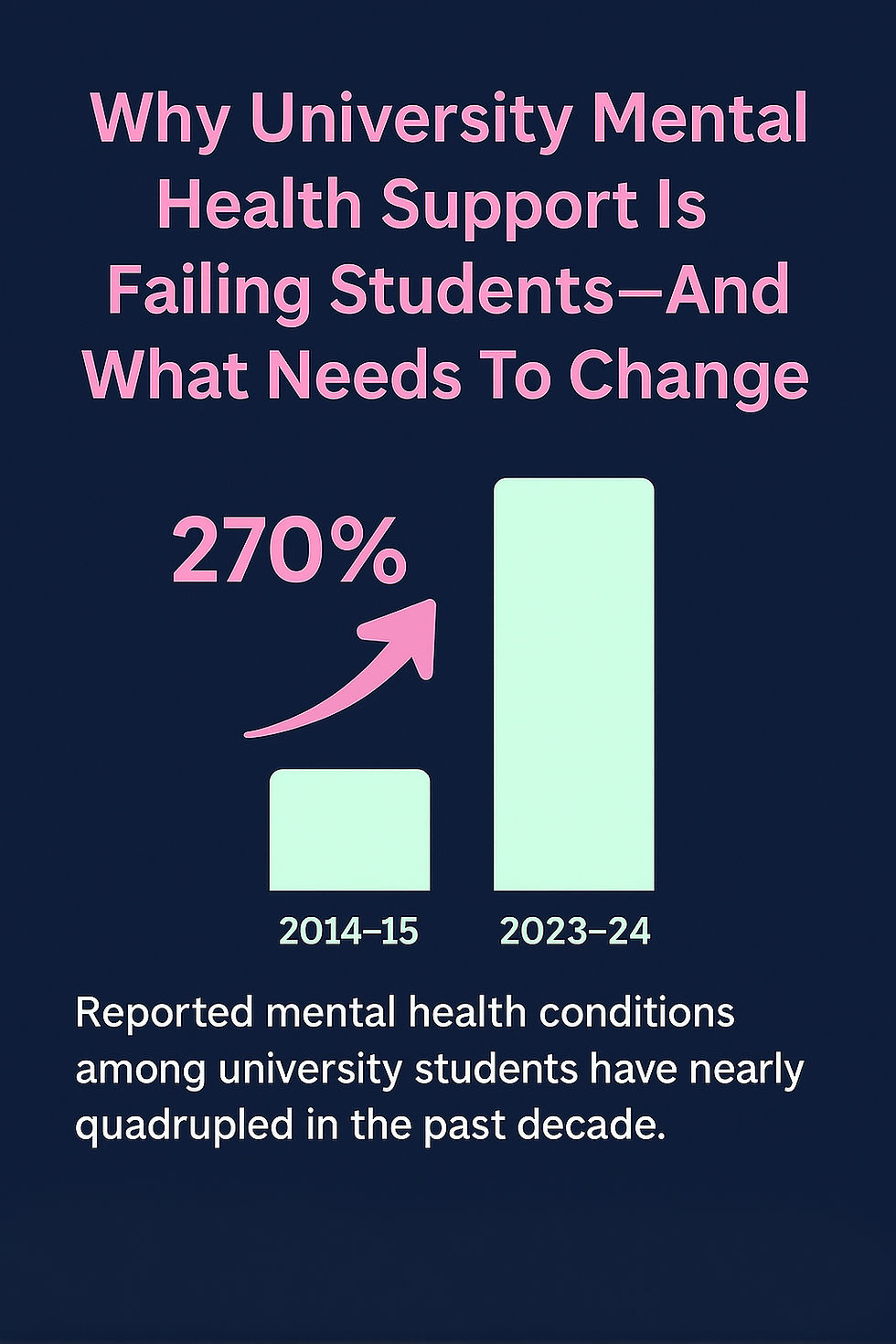Why University Mental Health Support Is Failing Students — And What Needs to Change.
- Jul 24, 2025
- 2 min read

When Imogen arrived at university, she handed over a note from her former teacher to the wellbeing team, urging them to support her as she settled into student life. But months later, after new diagnoses of ADHD and autism, Imogen was still searching for meaningful help — caught in a system that made her feel “thrown between services.”
She’s not alone.
Across the UK, student mental health is in crisis. Young people are seeking support in record numbers, but what they often encounter is a patchwork of under-resourced services, one-size-fits-all advice, and long waiting times — leaving too many to fall through the cracks when they need help most.

A Generation in Crisis
The number of UK students disclosing a mental health condition has nearly quadrupled in the last decade; from 33,500 in 2014–15 to more than 122,000 in 2023–24 (HESA).
Today’s students are more willing to ask for help, but they often find themselves met with generic advice, long waits, or confusing pathways. Add to that the pressures of academic life, independence, and part-time work, and it’s no surprise late adolescence has become a flashpoint for mental health deterioration.
Universities have increased their mental health spend by 73% in the past five years, but the reality is many services were never built to handle complex conditions or continuous demand. And according to UCAS and HEPI, only 12% of students believe their institution handles mental health well.
Support typically starts with an academic tutor, not a mental health professional. From there, students might speak to a wellbeing officer, who may or may not escalate them to a counselling service. And for those with more severe concerns, the only option is often the NHS where waiting lists can stretch for months.
What Students Need Now
Students don’t just need access to support, they need it to be clear, responsive, and easy to navigate. In too many cases, pathways are disjointed, expectations unclear, and the burden of managing care falls on the person who’s already struggling.
What’s needed now is a smarter blend of digital and human support. That means giving students access to immediate, compassionate tools that help them manage day-to-day mental health challenges, while also ensuring a clear route to clinical help when needed.
Technology has a role to play, not to replace human care, but to bridge the gap between informal support and clinical intervention. This is the thinking behind Aria, our AI wellbeing companion, designed to offer guided support based on evidence-based psychological principles like CBT.
While Aria is not a replacement for therapy, it can serve as a valuable first step. A way to check in, reflect, and act earlier. And when it’s clear someone needs more, it can help point them toward appropriate next steps.
In short, students need support that meets them where they are emotionally, digitally, and without judgement. The technology exists. Now the system needs to catch up.
Imogen’s story: BBC article https://www.bbc.co.uk/news/articles/c93kzkle81wo



Comments